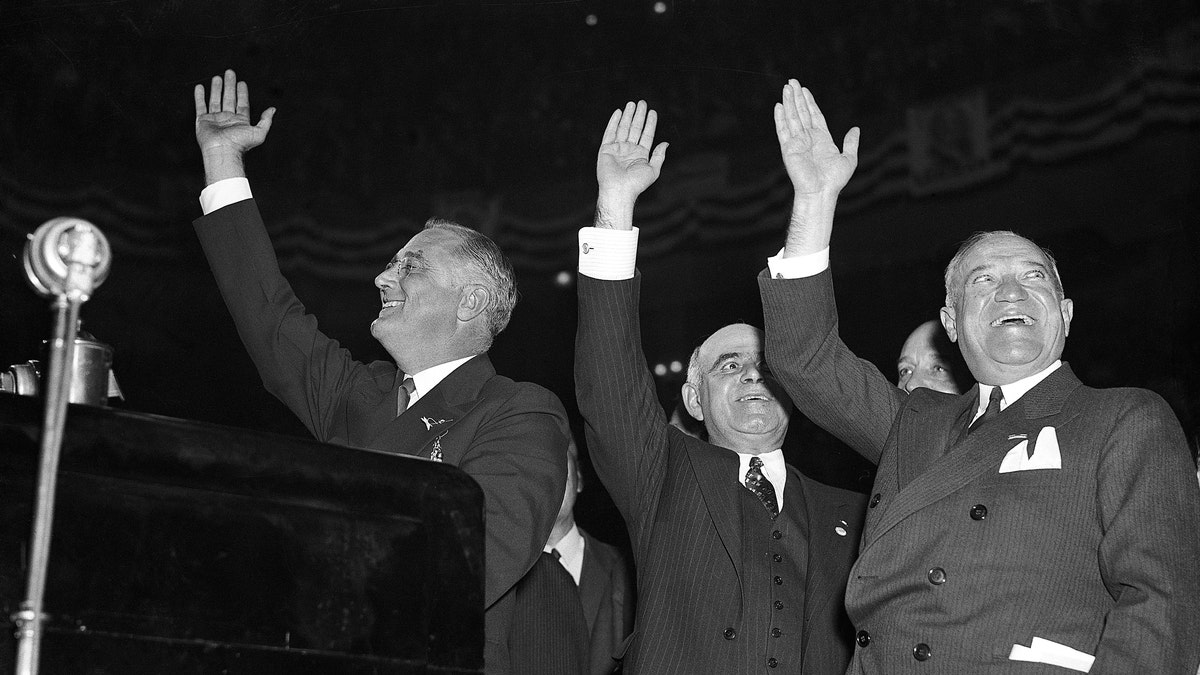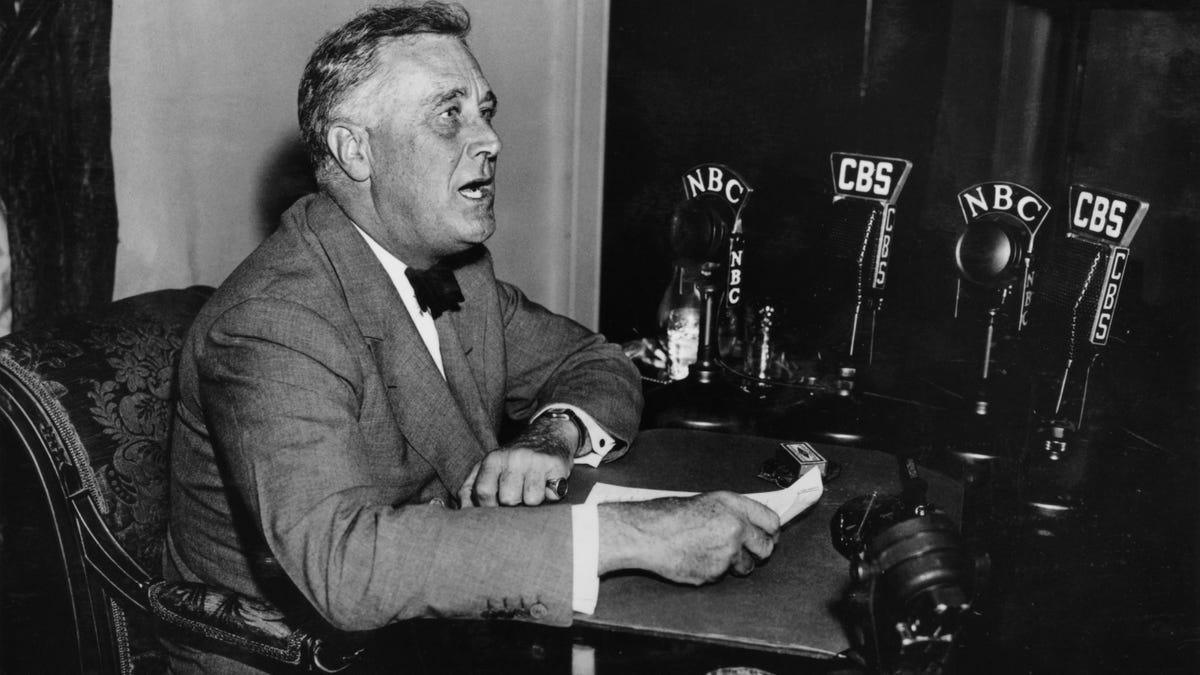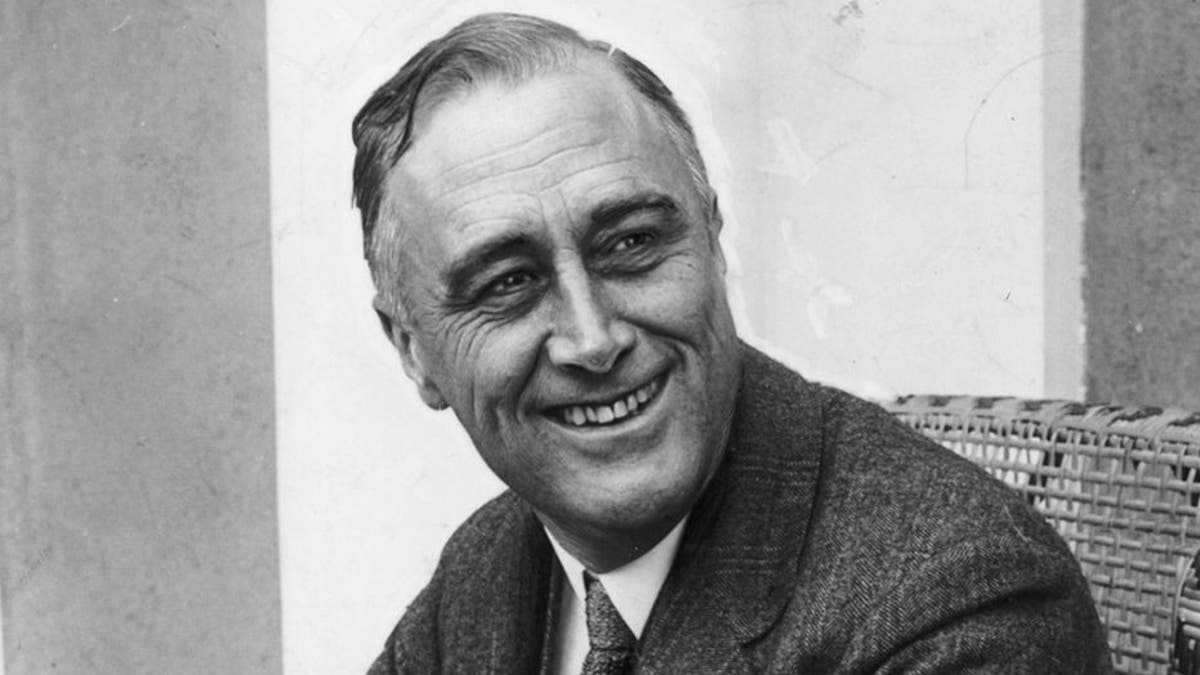Judge Jackson expected to receive questions on court packing
Sen. Mike Lee discusses the upcoming questions facing Judge Ketanji Brown Jackson in here Supreme Court confirmation hearings on ‘Fox News @ Night.’
President Franklin D. Roosevelt’s effort to pack the Supreme Court with as many as six new justices was rejected by the Democrat-controlled Senate on this day in American history 85 years ago — July 22, 1937.
FDR was buoyed by a huge victory over Republican challenger and Kansas Gov. Alf Landon in the 1936 presidential election.
He captured 46 of 48 states and 60.8% of the popular vote to earn a second term in office.
D-DAY 78 YEARS LATER: HOW FDR'S POWERFUL PRAYER UNITED AMERICANS
Roosevelt hoped to use the mandate from the American people to expand the Supreme Court with justices favorable to his reforms after the judicial branch struck down as unconstitutional several of his New Deal initiatives.

President Franklin D. Roosevelt (left) is shown during the final address of his 1936 reelection campaign at a gigantic Democratic rally in Madison Square Garden in New York City in October 1936. FDR easily beat challenger Alf Landon, GOP governor of Kansas, in the election, winning 46 of 48 states. (Getty Images)
He lobbied for the Judicial Procedures Reform Bill of 1937 in a March speech to the nation, one of his famous "fireside chats."
The then-president alleged that the Supreme Court was overwhelmed — and that it declined to hear 87 percent of the cases brought before it by private litigants.
SUPREME COURT ABORTION RULING WILL BOOST LEFT'S COURT-PACKING PUSH
FDR's plan ran into a stone wall of bipartisan opposition.

President Roosevelt delivers one of his "fireside chat" radio broadcast in this 1930s photo. FDR announced his plan to pack the Supreme Court in a March 1937 "fireside chat" to the nation. (Stock Montage/Getty Images)
Chief Justice Charles Evan Hughes flatly refuted the president’s claims that the court was overwhelmed.
MEET THE AMERICAN WHO HONORS THE MEMORY OF 200,000 FALLEN WAR HEROES
And Sen. Henry F. Ashurst, D-Ariz., chairman of the Senate Judiciary Committee, delayed hearings on the bill.

FDR tried to pack the Supreme Court and lobbied for it in a "fireside chat" — but on July 22, 1937, the Democrat-controlled Senate flatly rejected that bid. (Getty Images)
The Senate in 1937 was comprised of 76 Democrats and just 16 Republicans.
Yet it flatly rejected Roosevelt's plan, shooting down the Judicial Procedures Reform Bill by a 70-20 vote on July 22.
CLICK HERE TO GET THE FOX NEWS APP
The bill was sent back to committee, where the language calling to pack the court was removed.









































